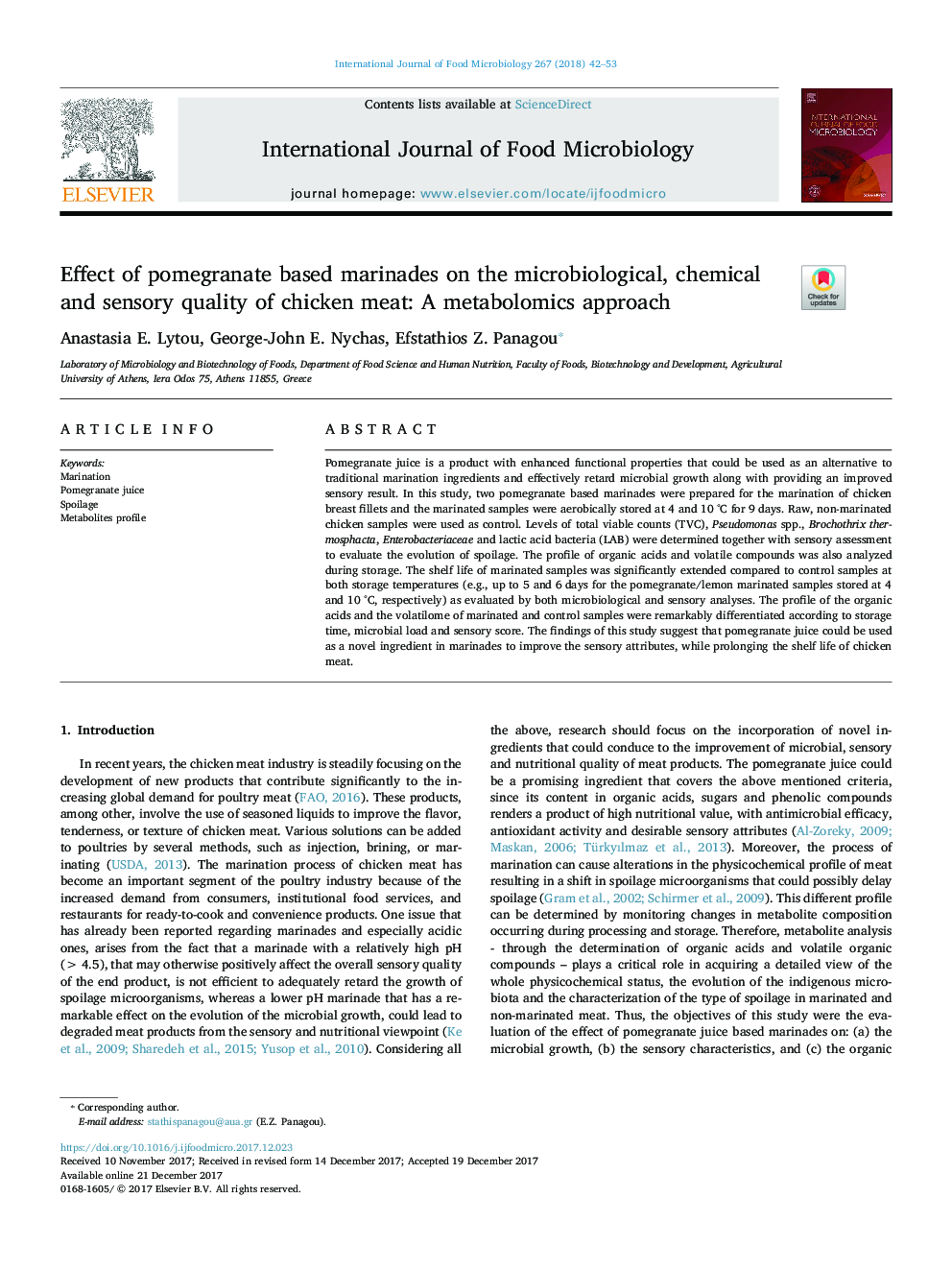| Article ID | Journal | Published Year | Pages | File Type |
|---|---|---|---|---|
| 8844296 | International Journal of Food Microbiology | 2018 | 12 Pages |
Abstract
Pomegranate juice is a product with enhanced functional properties that could be used as an alternative to traditional marination ingredients and effectively retard microbial growth along with providing an improved sensory result. In this study, two pomegranate based marinades were prepared for the marination of chicken breast fillets and the marinated samples were aerobically stored at 4 and 10 °C for 9 days. Raw, non-marinated chicken samples were used as control. Levels of total viable counts (TVC), Pseudomonas spp., Brochothrix thermosphacta, Enterobacteriaceae and lactic acid bacteria (LAB) were determined together with sensory assessment to evaluate the evolution of spoilage. The profile of organic acids and volatile compounds was also analyzed during storage. The shelf life of marinated samples was significantly extended compared to control samples at both storage temperatures (e.g., up to 5 and 6 days for the pomegranate/lemon marinated samples stored at 4 and 10 °C, respectively) as evaluated by both microbiological and sensory analyses. The profile of the organic acids and the volatilome of marinated and control samples were remarkably differentiated according to storage time, microbial load and sensory score. The findings of this study suggest that pomegranate juice could be used as a novel ingredient in marinades to improve the sensory attributes, while prolonging the shelf life of chicken meat.
Related Topics
Life Sciences
Agricultural and Biological Sciences
Food Science
Authors
Anastasia E. Lytou, George-John E. Nychas, Efstathios Z. Panagou,
